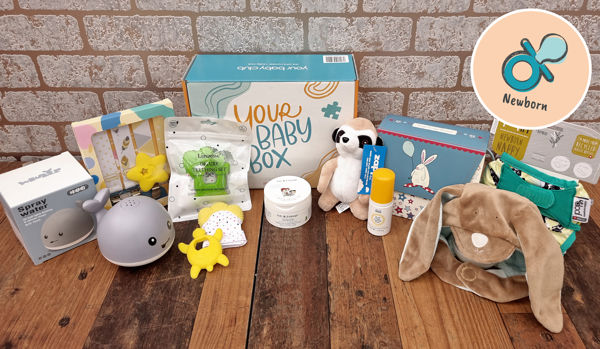Sometimes, in extremely unfortunate circumstances, pregnancies don’t always end in taking a happy healthy baby home from the hospital, sometimes, pregnancies don’t last the full term. Something no parent can anticipate is the day they expect to bring their baby home but instead are left with heartbreak. June 2020 is Neo-Natal Death and Stillborn Awareness Month. Neonatal death and stillbirths are just two of the most traumatic experiences for parents and so here are some stories from women and families who have experienced this loss, as well as some information about what it is to have a stillbirth or neonatal death and how to support those who may have gone through it.
Hear their Stories
‘Our second and third baby are not replacements for Tristan. They have helped us as a family to heal but we are still grieving and broken, with visible cracks.’
Sarah, about her son Tristan who was lost at 38 weeks, read more here
‘...from the first bedside scan that morning it quickly became clear that something wasn’t right. We were moved to a sideward and, as I lay on a bed surrounded by concerned-looking doctors and midwives, we were told something we had never even considered’
Katie, about her daughter Ottilie who was sadly taken at 39 weeks, read more here
‘I am staggered. Do they not count Sebastian as our baby because he died? Even though he was alive in me for 9 months, just like their own babies, who they were fortunate enough to hear cry when they were born? I gave birth to our son too’
A piece from a mum about baby Sebastian who was lost at 38 weeks, read more here
‘Before I could finish wondering why I hadn’t cried, a shadow slipped over me as I said you looked too perfect to have suffered death in my womb. And then reality, absent until that point, entered. Your life’s cry would never come. I knew this before I delivered you. But to feel this was entirely different.’
An anonymous letter for a mother’s stillborn daughter, read more here
‘If I had been methodically tracking his movements, could I have noticed there was a problem sooner and saved his life? I will never know.’
A piece by Gillian about her stillbirth, read more here
What is a stillbirth?
Stillbirths are when a baby dies any time from 20 weeks into the pregnancy up until the due date, this differs stillbirths from miscarriages, as miscarriages occur at any time up to the 20-week mark in pregnancy. It is unfortunate that in most cases it is unknown as to what causes a stillbirth to occur, however, some things that can increase the risk include.
- Premature Birth
- Birth Complications
- Infection
- Smoking, Drinking and using drugs using pregnancy
- Medical Conditions in the mother
- Sleeping on your back
As a result of this, some things that can be done to reduce the risk of stillbirths include maintaining a healthy lifestyle, attending antenatal appointments, monitor movements by your baby and sleeping on your side throughout the pregnancy. Be sure to contact your doctor if you experience any of the following.
- Dizziness, changes in your vision
- Long-lasting headaches
- Ongoing or severe nausea that is impacting your eating/drinking
- Swelling in your face, feet, hands or legs
- Reduced or different movement from your baby.
- Sudden bleeding from the vagina whilst in later stages of pregnancy
Also, remember to trust your mummy instinct, if you feel that something is wrong or something doesn’t feel right, then you are more than entitled to contact your doctor for advice and guidance.
What is a Neonatal Death?
Neonatal deaths occur when a baby dies during the first 28 days of life, although most commonly such deaths occur in the first week after birth. This differs them from stillbirths as these occur between the 20-week point in pregnancy and the due date. The three main causes of neonatal deaths are thought to be:
- Premature birth
- Low weight at birth
- Birth defects
5 Ways to Support Those Who Have Experienced It
For those around people who have experienced this, it can cause a significant amount of pain due to the simple question of, what can I do? So here are some simple ways that, as much as they won’t solve everything, may help you to support those who need it most.
1. Listen
This may sound simple, but sometimes the best thing you can do is simply be present, let them express themselves and release their emotions and simply be there to acknowledge and comfort them through their pain through listening.
2. Support
People deal with emotions in different ways and at different speeds, so sometimes you may need to support different people in different ways, for example, dad may be ready to talk whereas mum may not, etc. Try and tailor how you approach each person to how they need to be supported, whether that’s actively listening or being a more passive presence.
3. Let them Lead
Don’t try and push too much when supporting parents, don’t be afraid to ask what they are and aren’t comfortable with, and if you think they would rather talk about something else, then support it and begin a new conversation, always being conscious and sensitive to how they react.
4. Choose Your Words
Sometimes it can be easy to speak without thinking first, when handling a situation as delicate as this, remember that some things you may say to try and help may not be appreciated at all, comments like ‘you can always have another’ should be avoided. Remember they may not be ready to listen or accept what you may want to say so be ready to instead listen to help.
5. Don’t Assume
Assuming what someone should be doing or feeling is never going to be a good idea, it is extremely difficult to even comprehend the amount of emotion and pain they are feeling, and so rather than assuming, take on and acknowledge how they say they feel, and support and guide them in any decisions, rather than taking over.
If you need more support, guidance or help around this difficult subject, then take a look at the SANDS website, SANDS are a charity raising awareness and supporting those who have experienced stillbirths and neonatal deaths and this week marked the beginning of their awareness month surrounding the topic.
Have a look at their site here:





